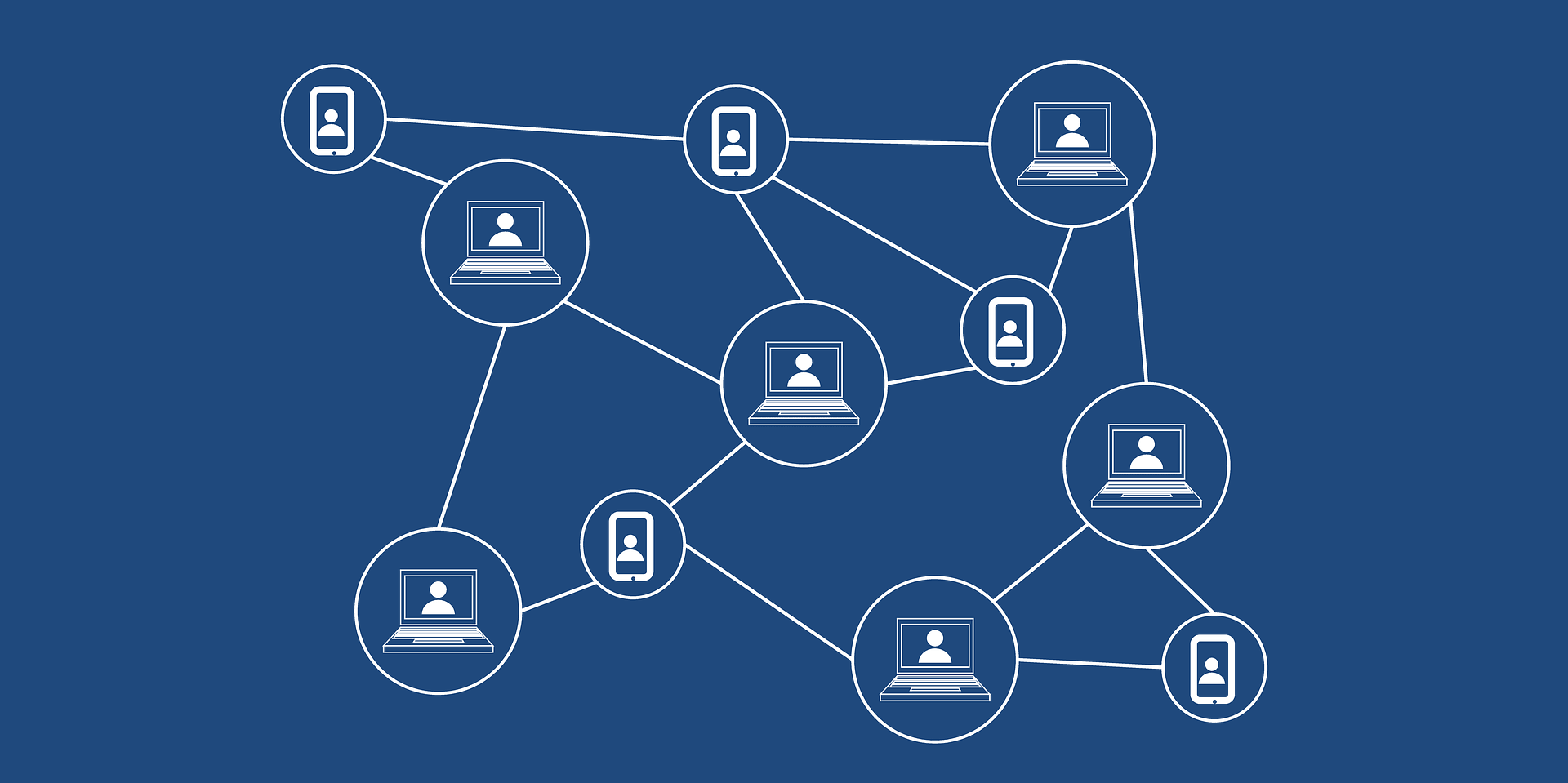Known for its transparency, security, and decentralization, blockchain technology has found its way into various sectors, offering unique advantages. As a digital ledger that records transactions across a distributed network of computers, blockchain ensures that data remains secure, immutable, and easily verifiable.
This combination of characteristics makes it an ideal solution for addressing many challenges faced by industries today.
1. Financial Transactions
Blockchain technology is reshaping the financial sector by enabling faster, more secure transactions. Traditional banking systems often involve lengthy processes with multiple intermediaries, leading to delays and higher costs. Blockchain, on the other hand, allows for peer-to-peer transactions that can be completed in seconds, without the need for a central authority to verify them.
The decentralized nature of blockchain reduces reliance on traditional banks, offering greater access to financial services for individuals in underserved or unbanked regions. By removing intermediaries, blockchain technology also significantly lowers transaction fees, making it an appealing option for cross-border payments and everyday financial transactions.
2. Supply Chain Transparency
Blockchain technology is dramatically improving supply chain transparency by enabling real-time tracking of goods as they move from manufacturers to consumers. Every step in the supply chain is recorded on a blockchain ledger, ensuring that the journey of each product is transparent and easily traceable. This real-time tracking not only allows businesses to monitor the movement of goods but also enables consumers to verify the origins and authenticity of the products they purchase.
By providing a tamper-proof record of each transaction, blockchain ensures that product authenticity is maintained throughout the supply chain. This helps to reduce the risk of fraud and counterfeit goods, especially in industries like pharmaceuticals, luxury goods, and electronics. With blockchain, businesses can ensure that their products are genuine, and consumers can have greater confidence in the integrity of the items they buy.
3. Data Security
Blockchain technology offers a robust solution to the growing concerns around data security by utilizing decentralized data storage. Unlike traditional systems where data is stored in centralized servers vulnerable to hacking and breaches, blockchain stores data across a distributed network of nodes. This decentralized approach makes it extremely difficult for cyberattacks to succeed, as altering or accessing the data would require breaching multiple locations simultaneously, significantly enhancing security.
In addition to protecting against cyberattacks, blockchain ensures data integrity and immutability. Once data is recorded on the blockchain, it cannot be altered or tampered with.
Each transaction or piece of data is cryptographically secured and linked to the previous one, creating an unchangeable chain of information. This immutability guarantees that the data remains accurate and trustworthy over time, providing a higher level of confidence in the security and authenticity of information stored on the blockchain.
With its decentralized architecture and strong cryptographic protections, blockchain technology is setting new standards for data security across industries.
4. Healthcare Management
Blockchain technology is offering secure and efficient ways to store and share sensitive patient data. Traditionally, healthcare data is siloed across different systems, leading to inefficiencies and potential security risks. With blockchain, patient data can be securely stored in a decentralized ledger, ensuring that only authorized individuals can access it. This not only enhances patient privacy but also protects against data breaches, which are a growing concern in the healthcare industry.
Blockchain simplifies the sharing of medical records across different healthcare providers. By placing patient information on a blockchain, medical records can be accessed instantly by authorized personnel, regardless of their location. This streamlines processes such as diagnosis and treatment, leading to better patient outcomes and more coordinated care.
Blockchain also enhances drug traceability by recording every step in the pharmaceutical supply chain, from manufacturing to distribution. This transparency ensures that drugs are authentic and have not been tampered with, reducing the risk of counterfeit medications entering the market.
5. Identity Verification
Blockchain technology offers a more secure and streamlined approach to managing personal information. One of the key benefits is its ability to reduce identity theft. Traditional identity verification systems often store personal data in centralized databases, which are prime targets for hackers. Blockchain, however, uses decentralized storage, making it much harder for malicious actors to access or manipulate personal information.
Blockchain simplifies digital identity systems by allowing individuals to create and manage a single, verifiable digital identity across multiple platforms. This eliminates the need for repeatedly entering personal details and ensures that users have full control over their own data. Blockchain's cryptographic features also allow for selective disclosure, meaning users can choose what information to share and with whom, further improving privacy.
6. Smart Contracts
Blockchain technology is driving innovation in contract management through the use of smart contracts. These self-executing contracts automatically enforce the terms and conditions once predefined criteria are met. By automating contract execution, smart contracts eliminate the need for manual processing and reduce the chances of human error or manipulation. This leads to more efficient and reliable transactions.
One of the key advantages of smart contracts is their ability to reduce the need for intermediaries. Traditional contracts often require third-party involvement, such as lawyers or banks, to verify and execute agreements. Smart contracts remove these intermediaries by directly enforcing the contract through blockchain, cutting down on costs and speeding up the process.
Since the terms are coded into the blockchain and cannot be altered once deployed, both parties can be confident that the agreement will be honoured exactly as agreed upon.
7. Real Estate Transactions
Traditionally, real estate transactions involve multiple intermediaries, extensive paperwork, and time-consuming processes, all of which can create delays and increase the risk of errors. With blockchain, property transfers can be streamlined by recording transactions directly on a decentralized ledger, which automatically verifies and processes ownership changes. This reduces the complexity of the process and eliminates much of the administrative burden.
One of the most significant impacts of blockchain in real estate is its ability to reduce fraud and errors. By recording every transaction in a transparent and immutable ledger, blockchain makes it nearly impossible to alter or falsify property records. This ensures that property ownership is secure and verifiable, protecting both buyers and sellers from fraud. Furthermore, since the information on the blockchain is tamper-proof, it reduces the risk of errors that could occur during the transfer process.
Another major advantage of blockchain in real estate is the potential for faster closing times. By automating many of the steps involved in a transaction and removing the need for intermediaries, blockchain allows real estate deals to close much more quickly than with traditional methods. Buyers and sellers can experience smoother, more efficient transactions, ultimately speeding up the entire process.
8. Decentralized Finance (DeFi)
Blockchain technology is at the heart of the Decentralized Finance (DeFi) movement, which is updating the way people access financial services by eliminating the need for traditional banks. DeFi platforms use blockchain to create a decentralized network of financial services, allowing users to lend, borrow, trade, and invest directly with one another without relying on centralized institutions. This opens up new opportunities for people who may not have access to traditional banking services, making finance more inclusive and accessible.
DeFi is also creating new and innovative financial products. From decentralized exchanges to yield farming, DeFi introduces a wide range of tools that offer users more control over their financial assets. These products are often more flexible, transparent, and efficient than those provided by conventional financial institutions, empowering users to engage with their finances in new ways.
By providing financial services to anyone with an internet connection, regardless of their geographic location or economic status, DeFi opens doors for millions of people who are underserved by traditional banks. This democratization of finance fosters greater equality and empowers individuals to participate in the global economy on their own terms.
9. Government Operations
Blockchain technology is influencing government operations by providing secure, transparent, and efficient solutions to complex processes. One of the most promising applications is securing voting systems. Traditional voting methods are often vulnerable to tampering, fraud, and human error. By using blockchain, governments can create a transparent, tamper-proof voting system where each vote is recorded on a decentralized ledger, ensuring that it cannot be altered or deleted. This increases trust in the electoral process and boosts voter confidence.
Government records, such as land titles, birth certificates, and legal documents, are often scattered across different databases and can be difficult to verify. With blockchain, these records can be securely stored in a single, transparent ledger that is easily accessible and verifiable by authorized parties. This reduces the risk of fraud and errors while improving accountability.
By automating tasks such as verifying identities, managing contracts, and tracking transactions, blockchain reduces the time and costs associated with bureaucracy. Governments can operate more efficiently, providing services more quickly and effectively while minimizing the chances of human error or corruption.
10. Environmental Sustainability
Blockchain technology is increasingly being used to support environmental sustainability by providing innovative solutions for tracking and managing resources. One key application is in the tracking of carbon credits. Blockchain offers a transparent and secure system for recording carbon emissions and the trading of carbon credits, ensuring that companies meet their environmental commitments. This system helps prevent fraud in the carbon trading market, allowing organizations to track their carbon footprints more accurately and take real steps toward reducing their emissions.
Another way blockchain supports sustainability is by enhancing renewable energy grids. Through decentralized energy systems, blockchain enables peer-to-peer energy trading, allowing individuals and businesses to buy and sell excess renewable energy directly. This not only makes renewable energy more accessible but also encourages its widespread adoption, fostering a more sustainable energy ecosystem.
Blockchain also promotes sustainable supply chains by providing transparency and traceability from the origin of raw materials to the final product. Consumers can verify that the products they purchase are sourced responsibly, while businesses can ensure that their supply chains are environmentally friendly. This level of transparency reduces the environmental impact of production processes and encourages more sustainable practices across industries.
Innovation with Blockchain Technology
Blockchain technology is more than just a passing trend; it’s a transformative force that is reshaping industries by enhancing transparency, security, and efficiency. From financial transactions to government operations and environmental sustainability, blockchain is driving change across sectors and pushing the boundaries of what is possible.
As industries continue to evolve and adapt, blockchain's influence will only expand, paving the way for a more decentralized, transparent, and efficient future. This powerful tool is not only changing the way we do business but also advancing how we manage and interact with data in every aspect of our lives.




